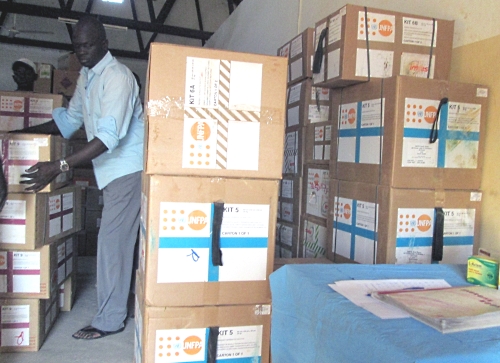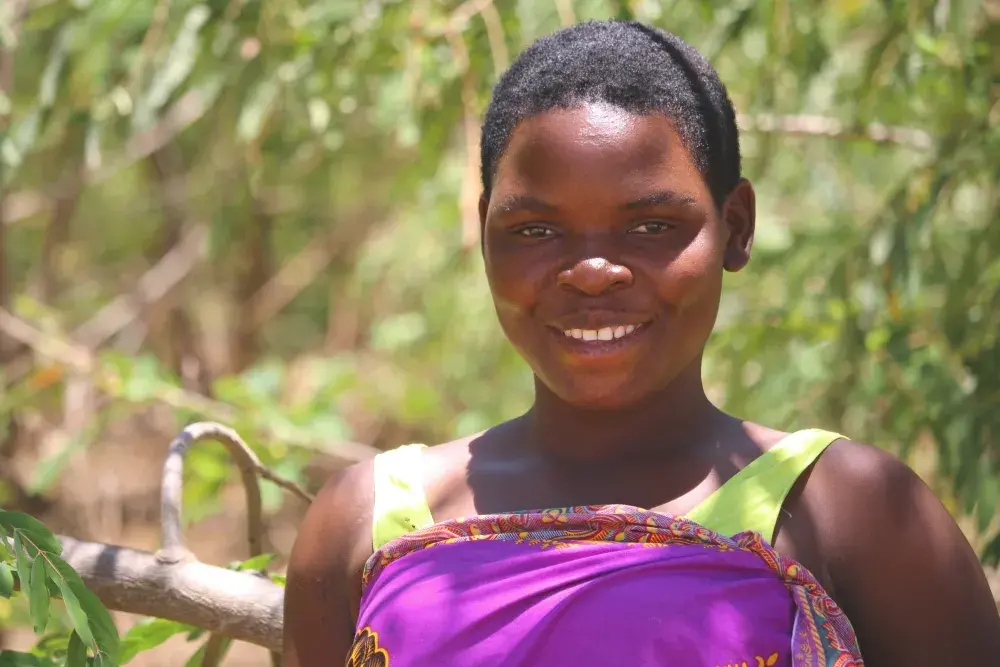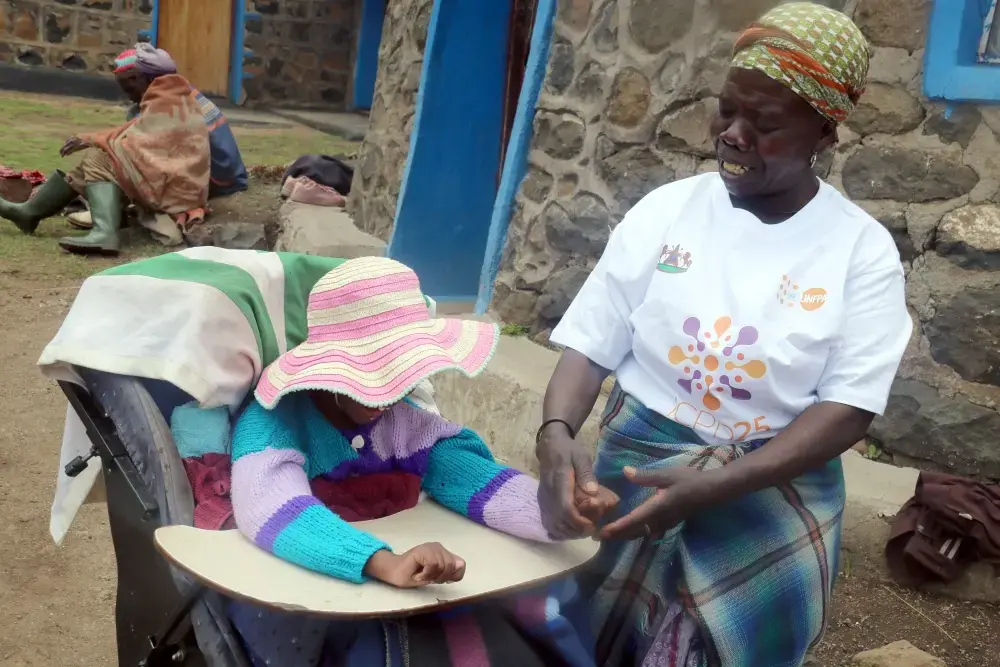South Sudan — The United Nations Population Fund, UNFPA and other humanitarian agencies working in South Sudan are preparing for possible flooding with the onset of the rainy season, which is likely to compromise the scaling up of humanitarian response to the crisis affecting hundreds of thousands of displaced people in the country, since fighting broke out in December last year.
Similar arrangements are also underway in preparation for flooding in Mozambique, where UNFPA is monitoring the situation closely. In Burundi, UNFPA was among humanitarian partners that responded to the effects of flooding in Bujumbura on 10 February.
South Sudan’s rainy season began in mid March and typically lasts to October each year. The floods affected about 350,000 people around the country and have been predicted to bring even greater hardship to an estimated 300,000 internally displaced people (IDPs) who are living in temporary shelters in the country’s flood-prone areas, especially around the Nile River. It is anticipated that as the general security improves, these people will need to be relocated to safer areas.
UNFPA South Sudan, together with other humanitarian organizations, has placed emergency reproductive health supplies in flood-prone regions of the country as part of preparedness measures. During the rainy season, up to 60 per cent of areas in South Sudan become inaccessible by road. This means that the delivery of supplies has to be intensified before the rains take hold so that critical health services will continue to be available throughout the year to vulnerable populations.
Many women die from pregnancy and childbirth
South Sudan has some of the worst reproductive health indicators globally – including a maternal mortality ratio of 2054 women per 100,000 live births, and a rate of 19 per cent of births being attended by skilled birth attendants. If emergency supplies are not built up in advance, people living in remote and flood-affected areas would face serious consequences due to their isolation from the national emergency response and lack of access to and availability of critical services. This would result in more complications in pregnancy and delivery, from women not accessing medical care and more would suffer long-term disabilities such as obstetric fistula or even death.
UNFPA, as a contingency measure, is to provide medical supplies and equipment to all 10 states. To date, 32 assorted Emergency Reproductive Health Kits and bulk commodities have been dispatched to Rumbek (Lakes state), Wau (Western Barh El Ghazal state), Awiel (Northern Barh El Ghazal) and Kwajok (Warrap state), as well as to Juba, the capital.
Due to insecurity in some conflict-affected states (Jonglei, Unity and Upper Nile) the distribution of supplies has been delayed.
Mozambicans on high alert

In Mozambique, people living in areas at risk of flooding were being cautioned by the local Disaster Risk Management committees, following high rainfall in the south and in neighbouring countries. The homes of an estimated 6200 peoplewere at risk of being flooded in the districts of Moamba, Magude and Manhica, with road access to certain areas potentially at risk of being cut off. This was due to the Incomati River reaching above alert level while the Umbeluzi basin was close to alert level.
People were being warned to avoid crossing rivers due to strong water currents in the basins of Umbelúzi, Incomati, Púnguè, Zambezi, Licungo, Lugenda and Messalo. A warning was also sent by the local Disaster Risk Management committees to people living in high-risk areas to seek temporary shelter on higher ground.
UNFPA responds to floods in Burundi
In Burundi, about 20,000 people, including 8,000 women and girls, were affected by flooding in February this year. UNFPA Burundi, as a member of a humanitarian taskforce led by the UN Resident Coordinator, participated in a rapid needs assessment of internally displaced people (IDPs) and those in the affected communities north of Bujumbura. The assessment included urgent needs and was coordinated by the national risks and humanitarian disasters management team.
The United Nations System in Burundi and the National Platform for Disaster Risk and Disaster Management collected food and non-food items for those affected by the floods. UNFPA provided 500 safe delivery kits to two health centres in the affected communities and 2500 dignity kits for women and girls affected by the disaster, to a total value of $60,000.
At a handing over ceremony at the Ministry of Public Security, UN Resident Coordinator Rosine Sori-Coulibally praised the Platform for its effectiveness in coordinating the emergency operations and said the UN agencies would continue to help mobilize aid to assist those whose needs had not yet been met.
UNFPA works to ensure that the sexual and reproductive health and rights and the dignity of the most vulnerable people are upheld in humanitarian settings. UNFPA advocates for prioritizing sexual and reproductive health, including HIV and GBV prevention, and response in disasters. UNFPA provides lifesaving reproductive health supplies and supports capacity building. UNFPA advocates for hygiene supplies for women and girls to meet their special needs in emergency situations.




